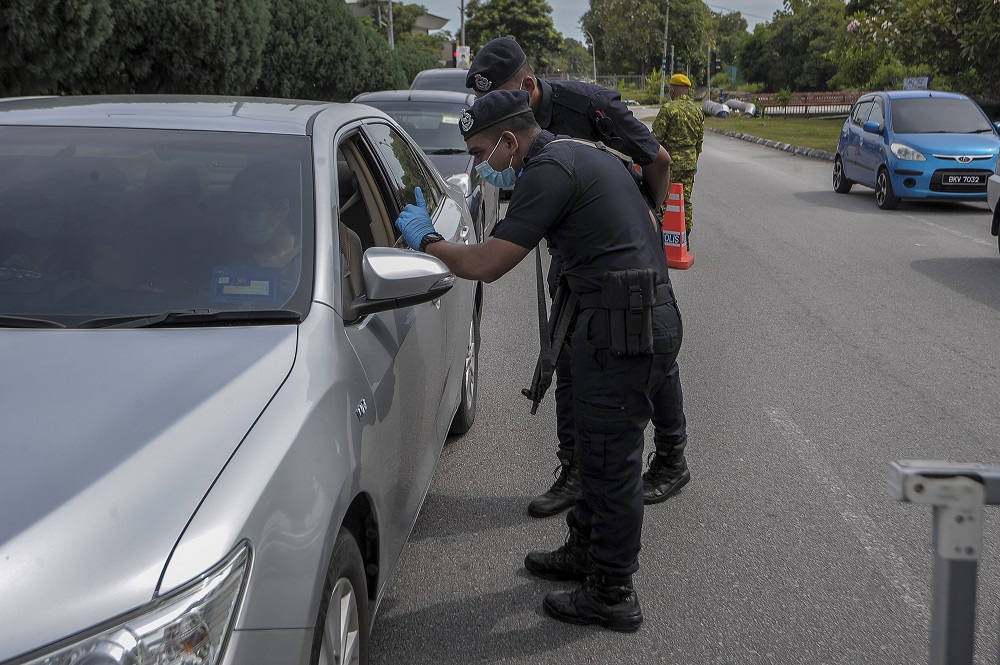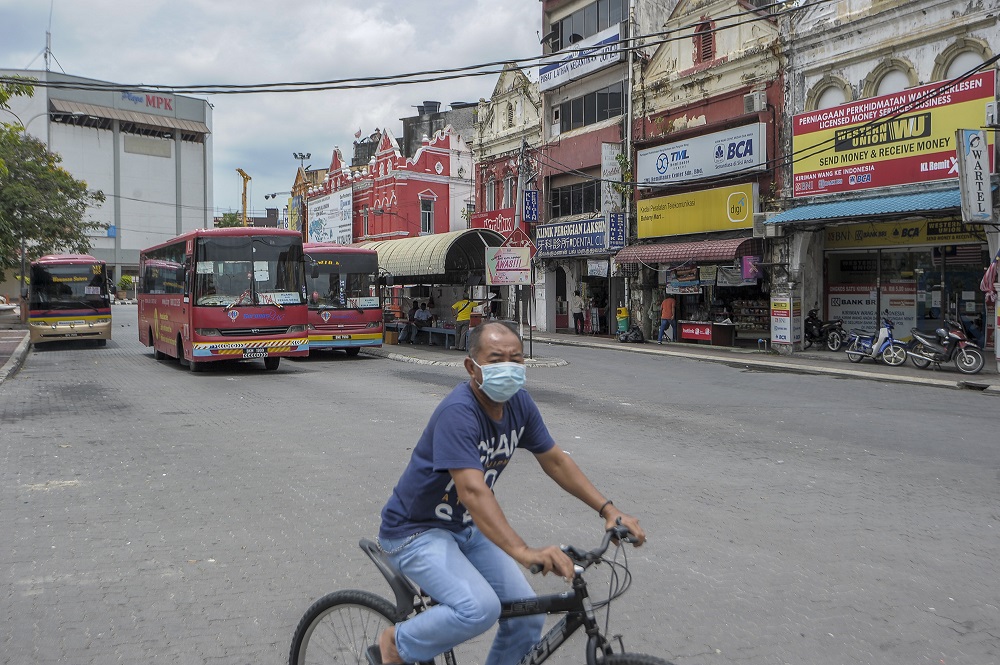KUALA LUMPUR, Oct 11 — The National Security Council, through cooperation with the country's states, has authorised the enforcement of targeted movement curbs in emerging Covid-19 red zone areas as part of its bid to prevent a new wave of infections.
This week alone, the number of new daily cases reached levels not seen even at the peak of the so-called second wave, which lasted from March until May and forced public health authorities to impose a nationwide lockdown.
On Tuesday, the Ministry of Health reported 691 new cases and four deaths, the highest ever so far. Local transmissions attributed to several of the new clusters in Sabah and Kedah were largely responsible for the huge surge.
Health director-general Tan Sri Dr Noor Hisham Abdullah said that the numbers point to the arrival of a third wave. He has repeatedly warned against complacency and urged the public to play its role by staying indoors to flatten the curve.
Although alarmed, Prime Minister Tan Sri Muhyiddin Yassin assured the public last Tuesday that there will not be a nationwide lockdown.
.jpg)
The authorities impose the enhanced movement control order (EMCO) to lock down specific localities identified as high risk. In April, security personnel blocked all movements in and out of Simpang Renggam, a district in Johor where a cluster had infected hundreds.
TEMCO applies to a much smaller space instead of entire districts or localities, such as a residential complex or an office building and with tighter restrictions.
Movement in and out of a premises or area placed under TEMCO is prohibited, similar to the stay-at-home-order of the EMCO. Only those providing essential services are allowed in, while only the head of a family is allowed to venture outside to buy food or household goods.
All social activities are prohibited. All residents of the areas must undergo mandatory quarantine that can be extended up to 28 days. Screening and testing are also compulsory.
The government has enforced TEMCO on several locations throughout the country already as fresh cases surge. A prison in Alor Setar, Kedah, where a new cluster is responsible for a third of recent cases, was the latest to be locked down under TEMCO.
AEMCO — Administrative enhanced movement control order (Bahasa Malaysia: Perintah Kawalan Pergerakan Diperketatkan Secara Pentadbiran)
AEMCO applies similarly to specific high risk areas but with fewer restrictions.
Residents in areas placed under the order are allowed to move within and travel out of the designated location, subject to clearance by officials stationed there.
Screening and testing applies to all residents in the location under AEMCO, similar to the EMCO, although food and essential services can operate normally.
CMCO — Conditional movement control order (Bahasa Malaysia: Perintah Kawalan Pergerakan Bersyarat)

Several iterations have been enforced since it replaced the MCO, but generally, free movement is allowed, subject to health standard operating procedures.
The first CMCO limited private vehicle carriage to just four people — one driver and three passengers — from a single household. The quota was eventually lifted although the rule that only passengers from the same household can travel in a vehicle remained enforced.
Public transport providers were allowed to operate but had to cut their passenger capacity to half. For taxis and e-hailing vehicles, a maximum of two passengers are allowed for each journey.
Interstate travel is prohibited
Social gatherings for economic, religious, educational and learning, sports, recreational, social or cultural purposes were banned under the first CMCO, before a May 22 amendment allowed gatherings at places of worship based on the health director-general's orders.
The series of drastic spikes in daily cases of late have pushed the government to reinstate the CMCO but only in specific red zones.
Starting midnight yesterday, an updated and stricter CMCO took effect in 36 localities within the Klang district in Selangor, and three districts of Sandakan, Papar, and Tuaran in Sabah.
Restrictions include allowing just two members from the same household to buy food and household supplies, and the shutdown of all non-essential services.
Operation hours of restaurants, grocery shops and convenience stores were also restricted to between 6am and 6pm.
All social or religious activities have been banned, with workers told to work from home under the newly enforced CMCO.



















